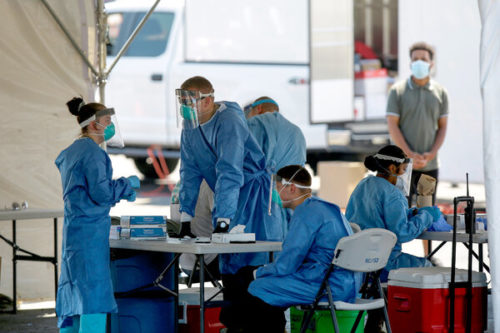Milwaukee Said It First: Racism is a Public Health Crisis
Share
Explore Our Galleries
Breaking News!
Today's news and culture by Black and other reporters in the Black and mainstream media.
Ways to Support ABHM?
By Audra D. S. Burch, New York Times

Joshua Lott for The New York Times
From cradle to grave, Black Milwaukeeans were suffering. The infant mortality rate was nearly three times that of white people. The life expectancy was about 14 years shorter, on average. Life in between offered its own hardships — from gaping disparities in education to income — officials realized years ago, in what was among the most racially segregated and inequitable cities in America.
The county executive at the time, Chris Abele, knew there was something insidious at work, something hard to tame or fix. He placed blame on centuries of deeply-rooted anti-Black racism — and the crushing chronic stress it caused. The result was remarkably different life experiences and health consequences for Black and white residents.
So Milwaukee tried something bold to fight the statistics. They declared racism a public health crisis, and vowed to combat it with the same vigor they would a disease outbreak. The declaration stitched together what might have seemed unconnected and publicly committed the city to a wide-ranging agenda aimed at addressing Milwaukee’s generational inequities.
It would not be easy or fast. Making the link between racism and health took some convincing, those involved in the designation said, as did persuading residents that racism extended well beyond name-calling and other overtly bigoted acts…
Full article here
More Breaking News here
ABHM galleries here









Comments Are Welcome
Note: We moderate submissions in order to create a space for meaningful dialogue, a space where museum visitors – adults and youth –– can exchange informed, thoughtful, and relevant comments that add value to our exhibits.
Racial slurs, personal attacks, obscenity, profanity, and SHOUTING do not meet the above standard. Such comments are posted in the exhibit Hateful Speech. Commercial promotions, impersonations, and incoherent comments likewise fail to meet our goals, so will not be posted. Submissions longer than 120 words will be shortened.
See our full Comments Policy here.